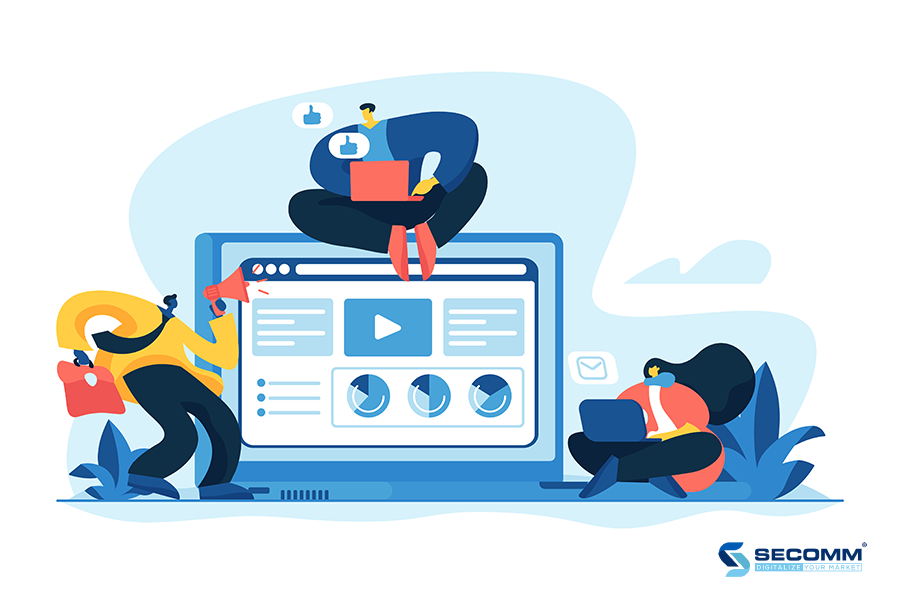It seems we can’t find what you’re looking for. Perhaps searching can help.
Sign Up for newsletter!
Subscribe to get the latest eBook!
Hotline







Several conflicting opinions often appear, which leads to much suspicion about the actual benefits that content brings to businesses. The doubts possibly stem from different issues when implementing client research or positioning the development orientation. A B2B effective online content strategy results from a meticulous and thorough investigation of all aspects of the business, including the market, competitors, clients, entrepreneurial potential, and much more.

Those factors are the initial steps for the content strategy. When the letters’ sequence creates their miracles, businesses smoothly fulfilled the original objectives to reach out to the developing goals. As a result, content shapes everything that the industry puts out, prompting customers to take action with the services or products they desire.
In other words, SEO will have no result if supportive content does not exist. With a diverse and high-end content system built in advance, SEO specialists can easily optimize the website rankings and reliability on search engines with more strategic approaches. Besides, businesses can use BLOG to develop an abundant content base, attracting more users to visit the website.
Business needs to research accurately and specifically about the target audience to implement an effective online content strategy. Content creators also need to determine who they are writing for, what they are writing for, and what value are they seeking?

First, find out information about businesses to identify audience target with the following fundamental questions:
The buying process
Sales goals are also an important step to prepare for an effective online content strategy. These include business goals and content goals. In particular, business goals play as the direction for specific objectives and targets in businesses, including criteria on sales, market share, growth, revenue, and profit. Besides, the content target is a part of the marketing objective, a supporting factor for the business goals in developing the speed of goods/services distribution, brand positioning, value in use of the products, and loyal client creation base for the brand.
Specific content targets will create a solid foundation for a content strategy from the simplest and most basic targets. The following proposed targets will be:
It is acutely worth reminding that simultaneously achieving all the goals is impossible. That is a greedy view. Instead, prioritizing the most important ones in the short/long term and dividing the targets according to each stage of business growth.
In the next step, concretize the above primary goals with specific factors based on the S.M.A.R.T principle. This process will help to set more oriented goals.
S refers to “specific”. The primary goals mentioned above need to be more specific. To specify them, ask some of the questions by using the “6W” formula, namely:
Who?
What?
When?
Where?
Why?
M is “measurable”, which means the goals in detail. Those quantitative factors can be data collection, revenue, sales performance, customer satisfaction, and customer experience surveys.
A means “applicable”. No matter how specific the goals are, they need to be feasible and appropriate to the team-ability. Sometimes, to accomplish these goals, the staff need to improve their skills or undergo training processes. These are all essentials to approach closely to the previously measured goals. From that basis, marketers can estimate a suitable figure for the target. For example, if the sales revenue increases by 5% last month, setting a goal to increase sales performance by 10% this month. Oppositely, setting the 30% increase target would be unreasonable. Although there will be differences and characteristics of every single industry, measurable goals require a meticulous research process in general.
R is the beginning of “realistic” or “relevant”. To set the goal of studying abroad in Australia, make sub-objectives such as studying IELTS, finding a study abroad counseling center, applying for a VISA. However, studying Korean is not related to the whole abroad goals; it can not join the study plan. That plan is an underlying visual instance for a better understanding of relevant and real goals.
T, talks about time. The limit of time is essential to proceed with the on-time plans and break down the goals into actionable tasks. Time-bound brings a consistent and effective online content strategy in all aspects.
Unique and innovative ideas impressively contribute to an effective online content strategy. However, they are all a plus, not compulsory. In other words, creative ideas are supportive tools that help businesses grow faster, but more than a creative-content factor needed to accompany enterprises with long-term development. To do so is to gain the foundation of Marketing understanding that distributes creative content into suitable channels.

Generally, novelty can attract potential target audiences. Here are some of the suggestions to be more creative when brainstorming ideas to run an effective online content strategy:
B2B enterprises do not just need only one effective online content strategy. However, the effective one produces a substantial range of benefits for business, from improving the website-popularity to increasing sales revenue.
SECOMM, with expertise understanding, always seeks prudent solutions in both web structure and content system for partners in the working process. With well-trained staff, we understand how an effective online content strategy impacts brands. We hope to convey new values from old platforms and build fresh ideas from the hybrid of information based on materials.
 2
2
 4,266
4,266
 21
21
 1
1Subscribe to get the latest eBook!
Hotline